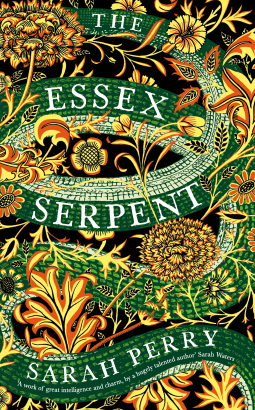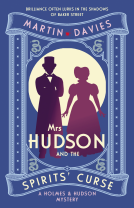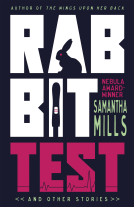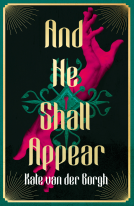
The Essex Serpent
The number one bestseller and British Book Awards Book of the Year
by Sarah Perry
This title was previously available on NetGalley and is now archived.
Send NetGalley books directly to your Kindle or Kindle app
1
To read on a Kindle or Kindle app, please add kindle@netgalley.com as an approved email address to receive files in your Amazon account. Click here for step-by-step instructions.
2
Also find your Kindle email address within your Amazon account, and enter it here.
Pub Date 27 May 2016 | Archive Date 23 Feb 2017
Description
Available Editions
| EDITION | Other Format |
| ISBN | 9781781255445 |
| PRICE | £14.99 (GBP) |
Average rating from 16 members
Featured Reviews
 Jessica K, Bookseller
Jessica K, Bookseller
The perfect blend of myth, mystery, history and romance. I loved every second.
 Eric A, Reviewer
Eric A, Reviewer
What an immensely pleasurable joy it is reading “The Essex Serpent” by Sarah Perry! I’ve been eagerly anticipating this novel since it was first published last year. I heard such high praise from friends and reviewers I trust and it was Waterstone’s book of the year. I’m greatly relieved that it lives up to the hype. This richly detailed Victorian-set novel with gothic inflections and distinctly vibrant characters gives the feeling of a modern-day book by Charlotte Brontë or George Eliot. Set over a year it follows the widow Cora Seaborne’s excursion to the rural Essex village of Aldwinter which buffets the edge of the gloomy Blackwater marshes. Cora has amateur archaeological inclinations and becomes excited by the secrets this location might hold after rumours and paranoia spread among the inhabitants that a prehistoric beast roams the waters. Strange sightings are reported, bodies are found, children turn hysterical and people go missing. It’s full of suspense as the mystery gradually unfolds, but also skilfully presents competing ideologies of science vs religion and reason vs faith through the actions and sensibilities of the characters. More importantly it shows how these perspectives aren’t necessarily dogmatic and that “far from there being one truth alone, there may be several truths, none of which it would be possible to prove or disprove.” This is a novel which delivers highly on adventure and romance to form an intelligent, moving story.
Cora experiences a sense of independence and freedom now that she’s released from her marriage. She no longer makes much effort with her appearance and can pursue what solely interests her. In particular, she feels liberated from gender constrictions stating “The wonderful thing about being a widow is that, really, you’re not obliged to be much of a woman anymore.” This allows her to express her intelligence and also begin to understand what she desires for the first time (rather than always projecting what her late husband desired.) She’s accompanied by her longtime companion Martha, an ardent socialist who harbours a secret attraction to Cora. At Aldwinter Cora is introduced to the local reverend William Ransome and his luminous wife Stella. The burgeoning romantic relationship that develops between Cora and William is especially interesting because it’s based primarily on their different ideas and competing perspectives as well as physical attraction. Perry is especially good at portraying the complexity of relationships where the boundaries of gender and friendship are blurred.
Although the novel is framed around the notorious gigantic serpent which may or may not be terrorizing the villagers, it’s more about what reality people choose to believe. Some ascribe to values based around superstition, others live by principles from religious texts and others aspire to forge a new understanding of the world based upon scientific findings. What Perry does so magnificently is imbue how the characters perceive their environment based on these perspectives of the world. To Martha who is cognizant of social and economic imbalances “It seemed… that the city’s bricks were red with the blood of its citizens, its mortar pale with the dust of their bones; that deep in its foundations women and children lay head-to-toe in buried ranks, bearing up the city on their backs.” But wealthy George Spencer who dabbles in the medical field expresses that “sometimes I think we must be walking on shoals of bodies without realising it and all the earth’s a graveyard.” While Cora, with her faith in archaeological discovery, feels that “all the earth was a graveyard with gods and monsters under their feet, waiting for weather or a hammer and brush to bring them up to a new kind of life.” These views of the world around them overlap and form a complex picture of not only the changing landscape, but the evolution of the people and wildlife that inhabited it.
Alongside the compelling story and complex characters, the novel is especially enjoyable for the deeply emotive language Perry uses in her descriptions. At some times she expresses a Virginia Woolf-like sensibility where a room literally comes alive when the characters enter it: “Light picked out channels cut in crystal glasses and glossed the polished wood of the table, and Stella’s forget-me-nots bloomed on their napkins.” The descriptions show a playful use of language and convey a very definite sense of mood. I don’t think I’ve read about such a powerfully expressive sense of atmosphere since Andrew Michael Hurley’s eerie and suspenseful “The Loney”. It’s also impressive how this keen sense of detail brings to life the natural environment of Essex which is a county that is somewhat forgotten or maligned these days.
It would be easy to write a lot about many of the other fascinating characters that populate this novel. It feels like Cora’s son Francis may have some form of autism as he has a regimentally ordered mind and emotionally detached personality. Cora’s friend Luke Garrett is a surgeon who pioneers controversial new practices. The ginger-haired girl Naomi Banks possesses unruly powers and passions. Stella and William’s precocious daughter Joanna understands how exerting authority with confidence can get people to follow you. Their lives intersect in fascinatingly dramatic ways, but I don’t want to go into too much detail to avoid giving the plot away. Suffice it to say, the fact that they are so memorable is a testament to how distinctly original Perry makes her characters. Many surprises and delights are to be found in this book. “The Essex Serpent” is as intricate and beautiful as its cover.
 Matthew T, Reviewer
Matthew T, Reviewer
A great read about life in rural Essex - at a time steeped in superstition and rumour. This is a book convincingly set in the 19th century about Cora Seaborne, the novel's protagonist, who leaves London to investigate the supposed presence of a mystical beast in the Essex marshes. However, it's about so much more: relationships, trust, power and deceit.


















